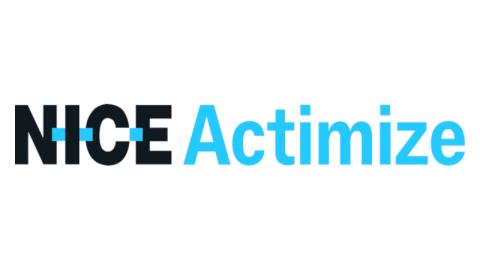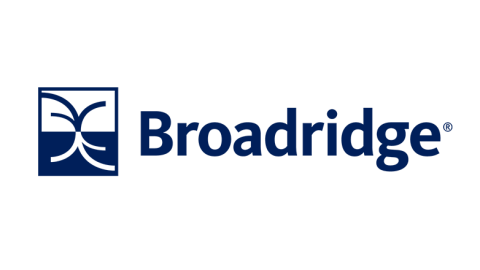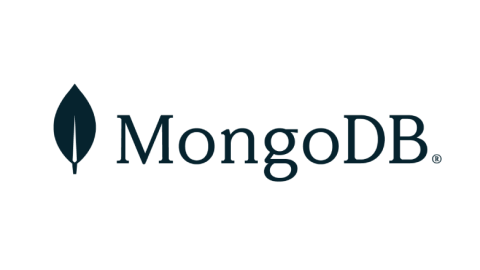AML Career Overview
The world of Anti-Money Laundering (AML) offers a diverse range of career opportunities for professionals working in compliance, risk management, anti-money laundering, and anti-financial crime. This section provides an introduction to AML careers and highlights the importance of AML career progression.
Introduction to AML Careers
AML professionals play a vital role in safeguarding the integrity of the financial system by detecting and preventing illicit financial activities. These activities include money laundering, terrorism financing, fraud, and other financial crimes. AML careers offer a unique blend of analytical skills, regulatory knowledge, and investigative abilities.
Professionals in AML positions work closely with financial institutions, government agencies, and law enforcement to ensure compliance with AML regulations and to identify and mitigate risks associated with money laundering and financial crime. AML careers often involve conducting thorough investigations, analyzing financial transactions, and implementing robust compliance programs.
Starting an AML career can begin with entry-level positions that provide a foundation of knowledge and practical experience in the field. These positions may include data entry clerks, customer service representatives, or other related roles. As individuals gain experience and enhance their skills, they can progress to more senior positions with greater responsibilities and leadership roles.
Importance of AML Career Progression
Career progression in the AML field is crucial for professional growth, increased job satisfaction, and broader opportunities. It allows individuals to expand their knowledge, develop specialized skills, and take on more challenging roles. AML career progression also opens doors to higher-level positions with greater responsibilities and increased earning potential.
To advance in the AML field, professionals should focus on continuous learning and professional development. This includes pursuing relevant education, certifications, and training programs. Taking advantage of networking opportunities and staying updated on industry trends and regulatory changes also play a significant role in career progression.
By actively engaging in their careers and seeking out opportunities for growth, AML professionals can unlock their full potential and make a significant impact in the fight against financial crime. Whether through gaining practical experience, expanding professional networks, or committing to continuous improvement, AML career progression is a dynamic journey that leads to long-term success.
In the following sections, we will explore the various aspects of starting and advancing in an AML career, including entry-level positions, education and qualifications, certifications, career growth opportunities, skills and knowledge required for progression, and the importance of networking and professional development.
Starting an AML Career
For individuals interested in pursuing a career in the field of Anti-Money Laundering (AML), it’s important to understand the starting point and the path to career progression. This section will explore entry-level AML positions, education and qualifications required for AML careers, and certifications that can enhance the professional growth of AML professionals.
Entry-Level AML Positions
As individuals begin their journey in the AML field, entry-level positions serve as a stepping stone for career development. These positions often include roles such as data entry clerks, customer service representatives, or other related positions (Franklin University). While these roles may not directly involve complex AML analysis, they provide valuable exposure to the field and help individuals gain a foundational understanding of AML processes and regulations.
Entry-level AML positions typically require at least a bachelor’s degree in areas such as finance, accounting, business, or a related field (Franklin University). However, some positions may consider candidates with an associate’s degree as well (ZipRecruiter). These positions often offer benefits such as education assistance, health insurance, retirement plans, paid time off, and parental leave to attract talented individuals and foster their career growth (ZipRecruiter).
Education and Qualifications for AML Careers
To advance in their AML careers, professionals typically pursue additional education and qualifications beyond the entry-level requirements. While a bachelor’s degree is often the minimum educational requirement, further education can enhance career progression. Pursuing a master’s degree in business or specialized training in compliance can provide professionals with a deeper understanding of AML regulations and practices.
Certifications for AML Professionals
Certifications play a significant role in the career development of AML professionals. They demonstrate a commitment to excellence and a comprehensive understanding of AML practices and regulations. One such certification is the Certified Anti-Money Laundering Professional designation. CAMP is a globally recognized certification that validates the knowledge and expertise of professionals in the AML field. It can provide a significant boost to career development and open doors to new opportunities.
Other certifications, such as the Certified Fraud Examiner (CFE) and Designate Compliance Professional (DCP), can also enhance the capabilities of professionals working in compliance, AML, and counter-fraud. These certifications provide valuable knowledge and skills that enable professionals to navigate the complex landscape of financial crimes and regulatory compliance.
By acquiring relevant education and certifications, professionals can establish a strong foundation for their AML careers. These qualifications not only demonstrate expertise but also enhance credibility and increase job prospects in the competitive AML field. As professionals progress in their careers, they can explore various growth opportunities and continue to build their skill set in order to excel in the ever-evolving world of AML.
Advancing in the AML Field
As professionals gain experience in the field of Anti-Money Laundering (AML), there are numerous opportunities for career growth and progression. Advancing in the AML field requires a combination of specialized skills, continuous learning, and networking. Let’s explore the various aspects of career advancement in AML.
Career Growth Opportunities in AML
The AML field offers a wide range of career growth opportunities for professionals who are dedicated to combating financial crimes. The career progression in AML can lead to roles such as AML Analyst, Senior Analyst, Team Lead, AML Manager, and even Chief Compliance Officer, offering growth opportunities within the compliance sector (Edoxi). As AML compliance analysts gain experience and expertise in detecting financial crimes, they can advance to senior roles like AML managers or directors, which often involve leadership responsibilities and overseeing teams of analysts.
Skills and Knowledge for AML Career Progression
To advance in the AML field, professionals need to develop a strong set of skills and knowledge. Continuous learning and staying up-to-date with changes in AML regulations and compliance requirements are essential. Professionals interested in AML careers can benefit from specialized training and certifications, which provide the necessary skills and knowledge to excel in roles related to anti-money laundering and financial crime prevention. AML analysts can boost their career progression by obtaining relevant certifications such as the Certified Anti-Money Laundering Professional (CAMP) credential, which can enhance their credibility in the industry and lead to better job opportunities (Indeed).
Networking and Professional Development in AML
Networking and building relationships with professionals in the AML field play a crucial role in career advancement. Connecting with industry experts, attending industry conferences, and joining relevant associations can help AML professionals advance in their careers by gaining valuable insights, opportunities, and mentorship. Networking provides a platform to exchange ideas, learn from others’ experiences, and stay updated with industry trends. It can also lead to referrals and job opportunities (Indeed).
Engaging in professional development activities is equally important. Professionals should consider pursuing higher education, such as a master’s degree in financial crimes or a related field, to deepen their knowledge and skills and increase their chances of securing leadership roles in AML (Indeed). Continuous learning through workshops, seminars, and webinars can also contribute to career growth and staying informed about the latest developments in the AML field.
By focusing on career growth opportunities, developing relevant skills and knowledge, and actively networking and engaging in professional development activities, professionals can unlock success in their AML careers. The AML field offers a dynamic and rewarding environment for individuals committed to combating financial crimes and protecting the integrity of the financial system.
Salary and Job Market Trends
Understanding the salary range and job market demand is essential for professionals considering a career in Anti-Money Laundering (AML). In this section, we will explore the salary range for AML professionals, the job market demand for AML analysts, and the key skills necessary for AML career success.
Salary Range for AML Professionals
The salary range for AML professionals can vary based on factors such as experience, qualifications, and location. Entry-level AML jobs in the United States have an average salary of approximately $39,237 per year (ZipRecruiter). However, pursuing relevant certifications and gaining experience can lead to higher earning potential.
Certified AML specialists, for example, can earn between $67,000 and $90,000 per year, while senior compliance officers can earn over $120,000 annually. It’s important to note that these figures are approximate and can vary based on various factors, including job responsibilities, industry, and location.
Job Market Demand for AML Analysts
The demand for AML analysts in the job market remains significant. As financial institutions and businesses strive to combat money laundering and financial crimes, the need for skilled professionals in AML continues to grow. AML analysts play a crucial role in identifying and preventing illicit activities, ensuring compliance with regulations, and safeguarding organizations from reputational and financial risks.
As of November 2021, the average salary for an AML analyst in the United States is $60,821 per year. The salary can vary depending on factors such as experience, education, and location. With experience and expertise, AML analysts can expect higher earning potential, potentially reaching an average salary of around $70,000 per year (ZipRecruiter).
Key Skills for AML Career Success
To thrive in the AML field and enhance career prospects, professionals should possess a combination of technical skills, industry knowledge, and soft skills. Some key skills necessary for AML career success include:
- Knowledge of AML Regulations: A strong understanding of regulatory frameworks and compliance requirements is essential in the AML field. Professionals should stay updated with evolving regulations and guidelines to effectively identify and mitigate money laundering risks.
- Analytical Skills: AML professionals must have strong analytical skills to evaluate complex financial transactions, detect patterns, and identify suspicious activities. Attention to detail and the ability to interpret data are crucial for effective AML analysis.
- Communication and Collaboration: AML professionals often work collaboratively with cross-functional teams, including legal, risk management, and law enforcement agencies. Strong communication skills are vital for effectively conveying findings, collaborating on investigations, and building relationships with stakeholders.
- Critical Thinking and Problem-Solving: AML professionals encounter diverse scenarios that require critical thinking and problem-solving skills. The ability to assess risks, make sound judgments, and develop effective strategies to mitigate money laundering threats is crucial in this field.
- Ethical Conduct and Professionalism: Upholding ethical standards and maintaining professionalism are essential in AML careers. Professionals in this field handle sensitive information and must adhere to strict confidentiality and ethical guidelines.
By developing and honing these skills, individuals can position themselves for success in the AML field and increase their marketability in a competitive job market.
Understanding the salary range and job market demand, along with acquiring the necessary skills, can help aspiring AML professionals make informed decisions about their career paths. Continuous learning, staying updated with industry trends, and networking with professionals in the field can further enhance career prospects in the dynamic world of AML.
Building a Successful AML Career
To build a successful career in Anti-Money Laundering (AML), professionals should focus on gaining practical experience through internships and entry-level positions, engaging in professional networking, and demonstrating a commitment to professionalism and continuous improvement.
Practical Experience and Internships
Gaining practical experience is crucial for establishing a strong foundation in the AML field. Internships and entry-level positions within financial institutions provide individuals with hands-on exposure to the complexities of compliance, AML, and counter-fraud. These opportunities allow professionals to apply theoretical knowledge to real-world scenarios, develop critical skills, and gain a deeper understanding of the industry. Practical experience helps build credibility and enhances the chances of career advancement (LinkedIn).
During internships and entry-level roles, individuals should actively seek opportunities to learn from experienced professionals, participate in diverse projects, and familiarize themselves with industry regulations and best practices. This practical experience serves as a stepping stone for future career growth within the AML field.
Professional Networking and Engagement
Networking and engagement with professional associations and industry events play a vital role in career development within compliance, AML, and counter-fraud. Building relationships with peers and industry professionals can lead to valuable learning opportunities, mentorship, and potential career advancement. Engaging with like-minded individuals allows professionals to stay updated on industry trends, exchange knowledge, and gain insights into best practices and emerging technologies.
Professionals should actively participate in industry conferences, seminars, and workshops related to AML. These events provide opportunities to connect with experts, build a strong professional network, and stay abreast of the latest developments in the field. Joining relevant professional associations and groups also enables professionals to access resources, training programs, and job opportunities specific to AML careers.
Commitment to Professionalism and Continuous Improvement
Commitment to professionalism, integrity, and continuous improvement is essential for long-term success in the AML field. Professionals in compliance, AML, and counter-fraud must adhere to ethical standards, maintain the highest level of integrity, and prioritize the protection of the financial system.
To stay ahead in the AML field, professionals should continuously update their knowledge and skills. This involves staying informed about the latest regulations, industry trends, and technological advancements. Professionals should actively seek out professional development opportunities such as AML certifications, AML professional qualifications, and relevant training programs to enhance their expertise and demonstrate their commitment to continuous improvement.
By combining practical experience, professional networking, and a dedication to professionalism and continuous improvement, individuals can build a successful and rewarding career in the AML field.







